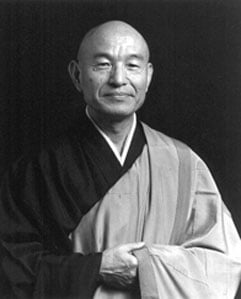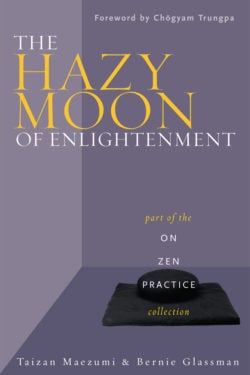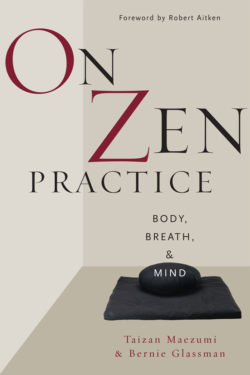Taizan Maezumi Roshi

Hakuyū Taizan Maezumi (1931–95) was a Japanese Zen Buddhist teacher and rōshi, and lineage holder in the Sōtō, Rinzai, and Harada-Yasutani traditions of Zen. He combined the Rinzai use of koans and the Sōtō emphasis on shikantaza in his teachings, influenced by his years studying under Hakuun Yasutani in the Harada-Yasutani school. He founded or co-founded several institutions and practice centers, including the Zen Center of Los Angeles, White Plum Asanga, Yokoji Zen Mountain Center, and the Zen Mountain Monastery. Taizan Maezumi left behind twelve Dharma successors, appointed sixty-eight priests and gave Buddhist precepts to more than five hundred practitioners. Along with Zen teachers like Shunryu Suzuki-roshi, Seung Sahn Dae Soen Sa Nim, and Venerable Hsuan Hua, Maezumi greatly influenced the American Zen landscape. Several Dharma Successors of his—including Tetsugen Bernard Glassman, Dennis Merzel, John Daido Loori, Jan Chozen Bays, Gerry Shishin Wick, Charlotte Joko Beck, and William Nyogen Yeo—have gone on to found Zen communities of their own. Maezumi died unexpectedly while visiting Japan in 1995.
Books, Courses & Podcasts
The Hazy Moon of Enlightenment
Wisdom’s volume On Zen Practice was conceived as the essential primer for beginning Zen practice, offering insight to every aspect of Zen training. The Hazy Moon of Enlightenment takes the reader to the next level, exploring some of the more subtle and sophisticated topics in Zen.
The first two parts of the book explore enlightenment and delusion: What is nature of enlightenement? What does it mean to describe enlightenment as sudden or gradual? What is the nature of delusion, and how can watch out for the particular delusion that masquerades as enlightenment? The third part looks at “enlightenment in action”—what it means for someone to living and acting in order with the deep wisdom of enlightenment, and how we can practice learning “learning how to be satisfied” and enjoy serenity and transquility. The final section is a moving and powerful firsthand account of one woman’s solitary realization of the deepest truths—a story that can become an inspiration for all of us. The contributors to this volume include some the pioneering masters who were seminal in helping Zen take firm root in American soil.
On Zen Practice
This updated landmark volume makes available for the first time in decades the teachings that were formative to a whole generation of American Zen teachers and students. Conceived as an overarching primer on the practice of Zen, chapters in this volume address every aspect of practice: beginning practice, shikantaza, chanting, sesshin, working with Mu, and the nature of koans.
In the intervening years since the publication of the earlier edition, countless books have appeared on Zen. Few, if any, have approached the strengths of On Zen Practice as a reference or teaching tool, and the book retains a lively, immediate quality that will appeal to today’s readers.


